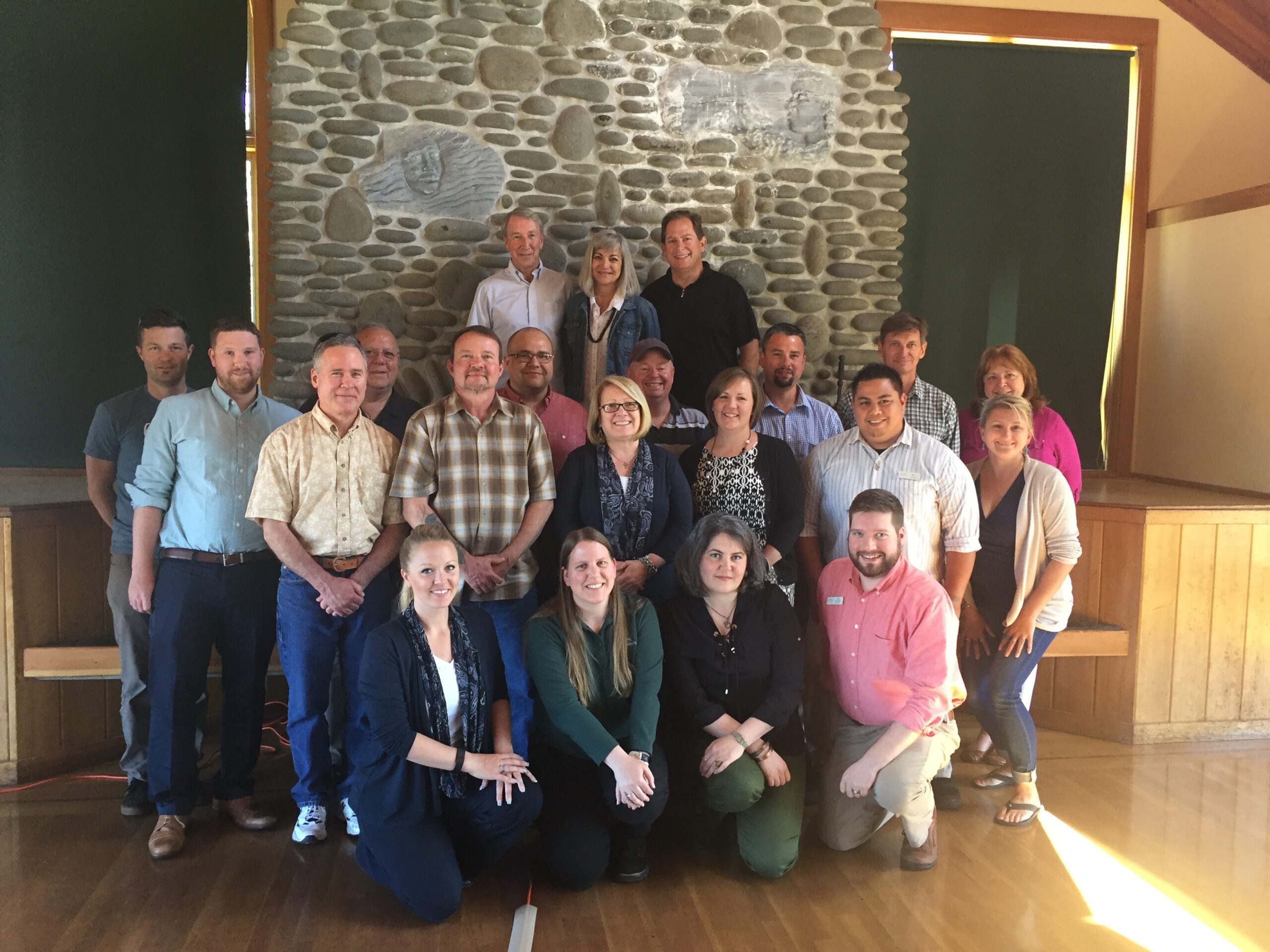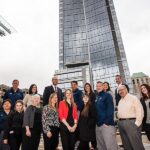On June 1st, we will reveal our 8th annual 100 Best Green Workplace rankings at an awards luncheon in the Nines Hotel. In anticipation of that event, we conducted brief interviews with a few of the organizations on the list regarding their green workplace practices. Here is the fourth in a series, a Q & A with Alyson Short, assistant manager with Escape Lodging.
OB: What is the latest green workplace innovation/initiative you have implemented?
AS: In a general sense, our industry is one of the most disposable. Single use items and products are unavoidable. But we have always encouraged guests to have a sustainable approach to their stay – with the familiar little card in the guest rooms encouraging consideration about whether sheets and towels need to be freshened each day, and equipping every room with a recycling bin. Though many of our guests are from the northwest for whom recycling is very much a way of life, there are many who are not so familiar. Our latest efforts have been trying to engage all guests in our efforts. In our breakfast room we improved our signage to include images of the items that are compostable or recyclable, hoping to catch guests before they automatically throw something out. The signs are a very visual reminder/introduction at the exact place the action occurs. We realized we were limiting our results by making assumptions that everyone actually knows how to recycle. We continue to examine where this can be improved.
OB: What is the biggest obstacle you encountered implementing sustainable workplace programs?
AS: From an operations perspective we are blessed with an amazing team. There is no resistance from anyone, at any level of our organization, from our owners and visionaries to the front desk and housekeeping teams. If someone has an idea, we go for it. Generally the only obstacles to execution are those simple tricksters: time, money, inertia. But a quick glance at our core values and minor tweaks in our approach and even those issues are resigned to nonissues. LED bulbs may cost more upon initial investment, but the utility savings in the long run make that choice a no brainer. In-room amenities that are earth friendly and not tested on animals are a little more expensive; but as a pet friendly property, that is a value we will not compromise. Considering the labor required to sort our own recycling (Cannon Beach does not offer commercial recycling), it may cost a little more, but is unquestionably the responsible thing to do.
Every employee is encouraged to bring their ideas, sometimes to brilliant effect. For years we delivered a newspaper to every guest every morning. After seeing newspapers left untouched day after day, a new employee suggested we simply ask guests upon check-in whether or not they wanted one. It sounds a little absurd that none of us had thought of it. It takes two seconds longer to ask the question, another minute to prepare the delivery list each day — no obstacles. We try to check that inertia every chance we get. But every department is deeply saturated in reducing and reusing — using digital forms, turning our documents into scratch paper, using aging towels as pet towels and then finally as cleaning rags before final retirement.
The unique challenge in our situation is simply the nature of our business. It is delicate to balance the ‘vacation mode’ of our guests with the heavy topic of environmental responsibility. We take care of guests. We want them to enjoy their time away from their busy lives. If a guest wants 10 new towels every day, we provide 10 new towels everyday. Implementing sustainability practices as a fabric of our operation, as simply matter of fact, is much more palatable to a guest than in-your-face shaming. We invite guests to identify with our goals, and participate; but if they don’t, we don’t shame them. They are here to enjoy themselves; we will deliver 10 new towels. The obstacles within the travel industry are hopefully counterbalancing, especially when people see our beautiful, pristine geography. We hope we are contributing to guests growing awareness.
OB: What benefits did the company realize as a result of green initiatives?
AS: Though we’ve never broken down the approach as green initiatives, there is simply satisfaction in doing the right thing, the sensible thing — not righteously; just matter of fact. We don’t market ourselves as a ‘green hotel.’ It is simply smart, and less costly to reuse old papers as scratch paper; it is sensible to use digital formats as much as possible; it is safer for our employees (and guests) to not use harsh chemical cleaning products; it is better for the planet, the wildlife, and our pet guests to not use chemical fertilizers in our landscaping. There are countless economic benefits from savings on office supplies to utility bills. But the real benefits are connecting with guests on a level of shared values, giving our employees integrity to think creatively within, and staying authentically true to our intention — helping people enjoy this beautiful part of the planet.
OB: What is the next big thing regarding sustainable workplace practices?
AS: I am no Merlin. But I would love for them to no longer be identified as ‘sustainable workplace practices.’ These things should simply be customary for everyone. But if businesses take the lead encouraging their employees and their customers, hopefully the efforts spill into individual homes too.





